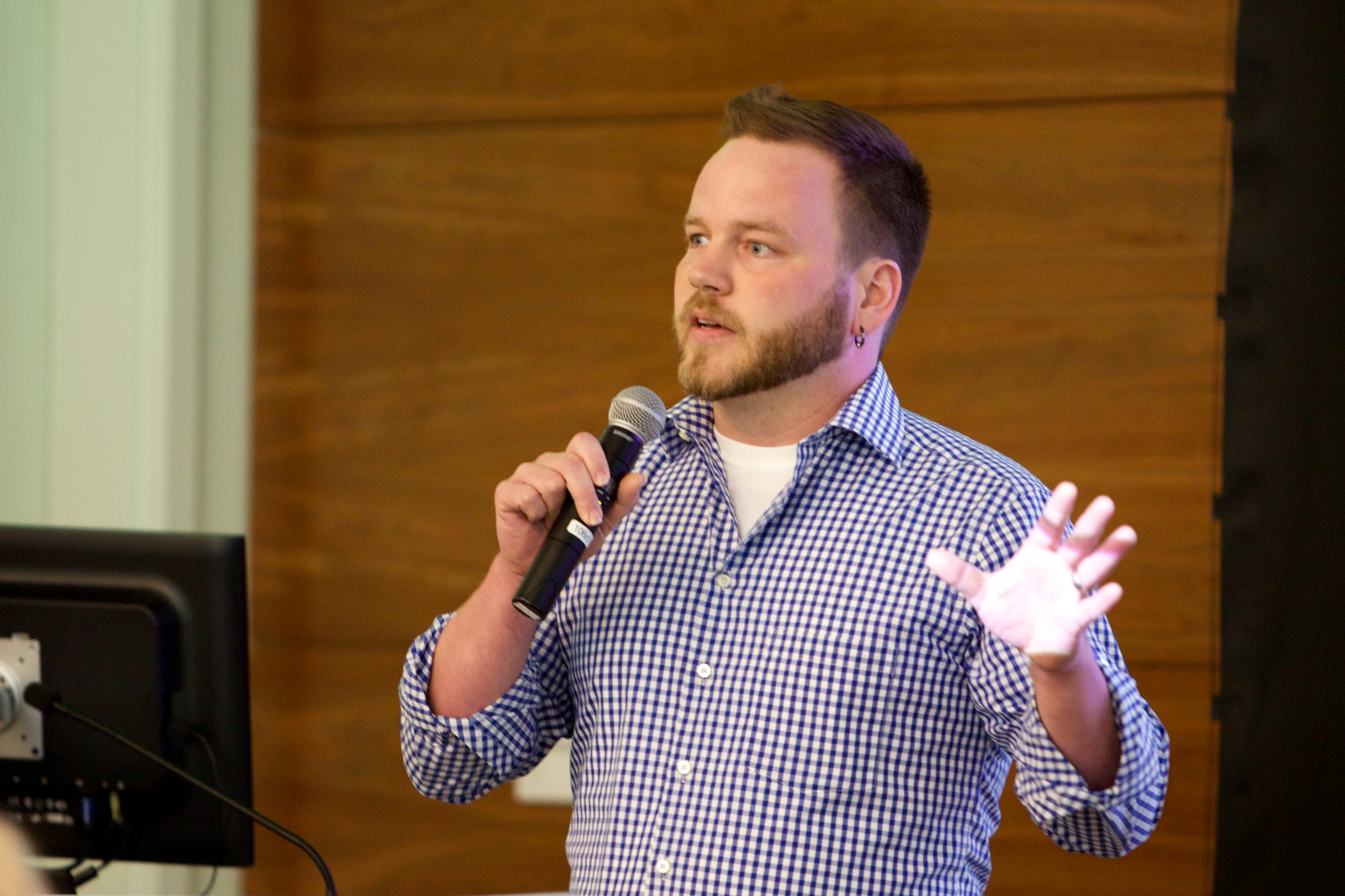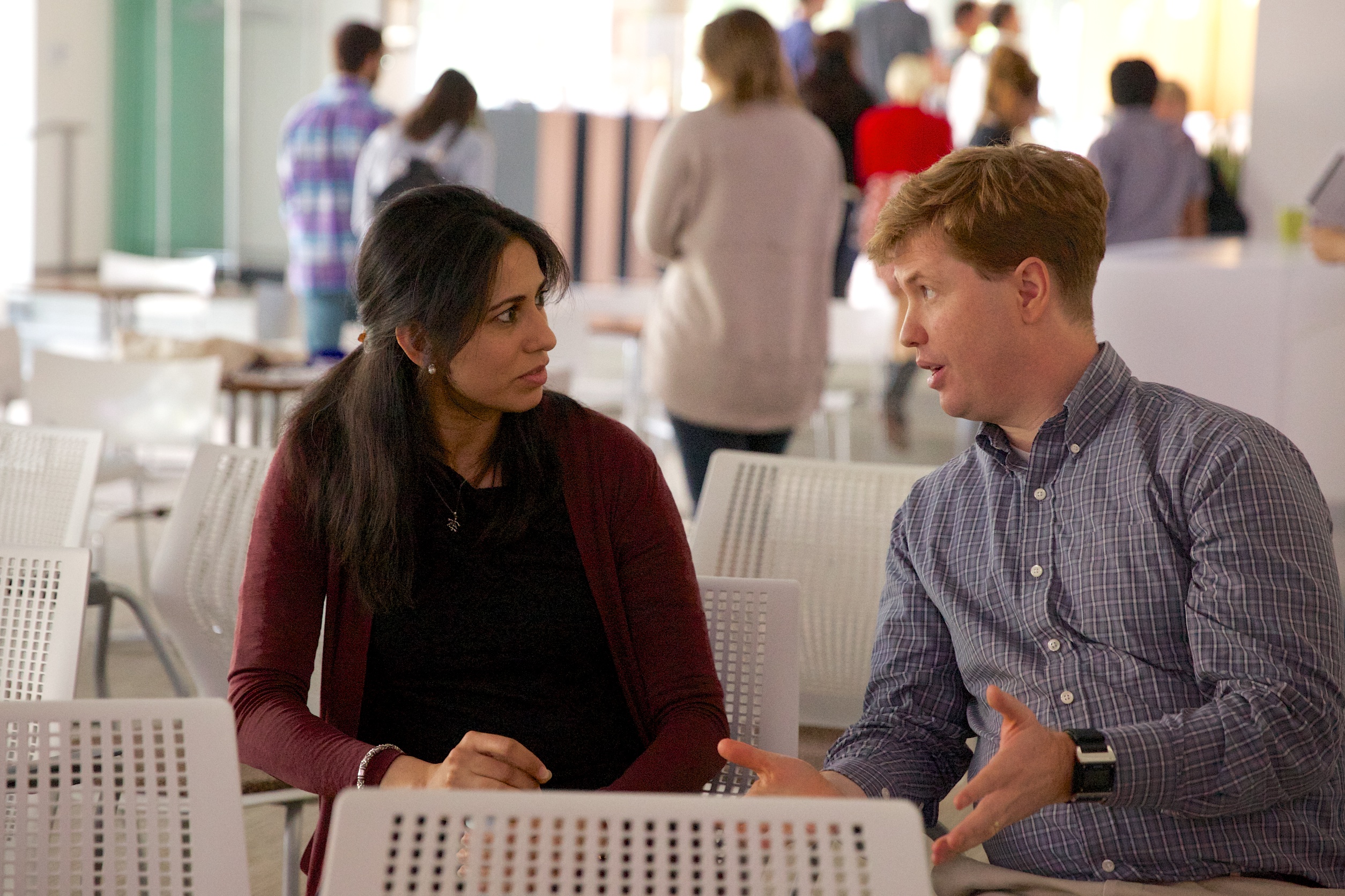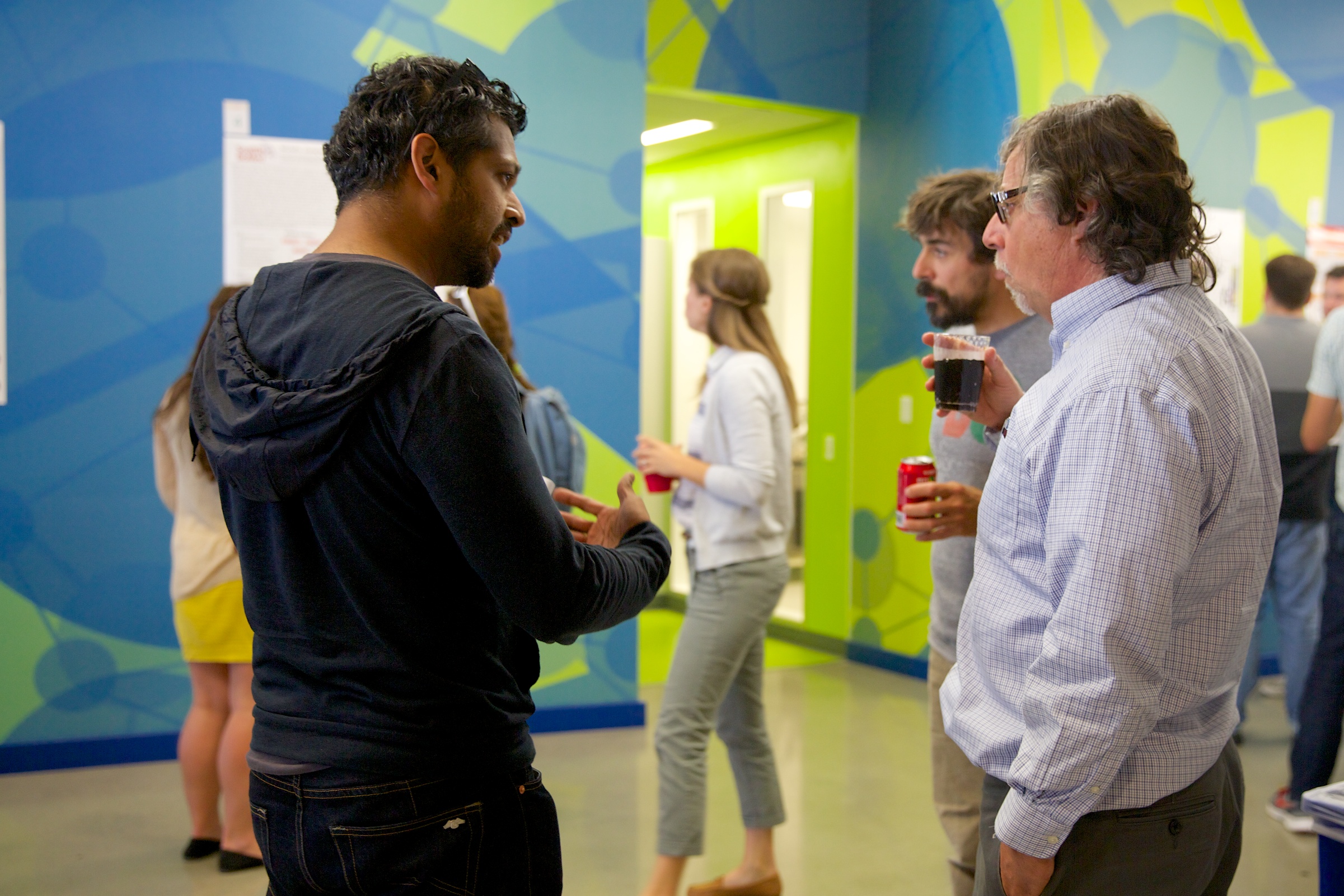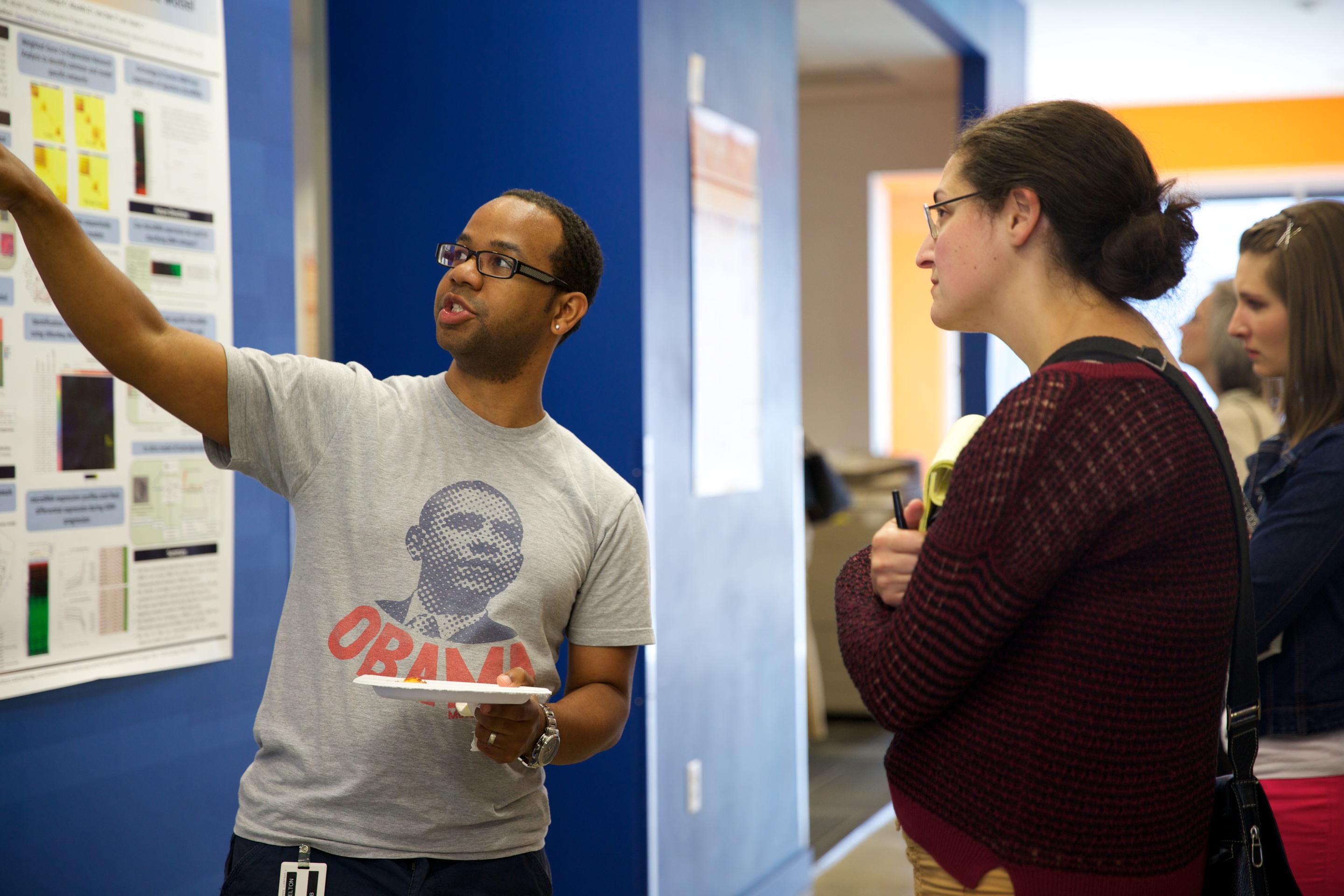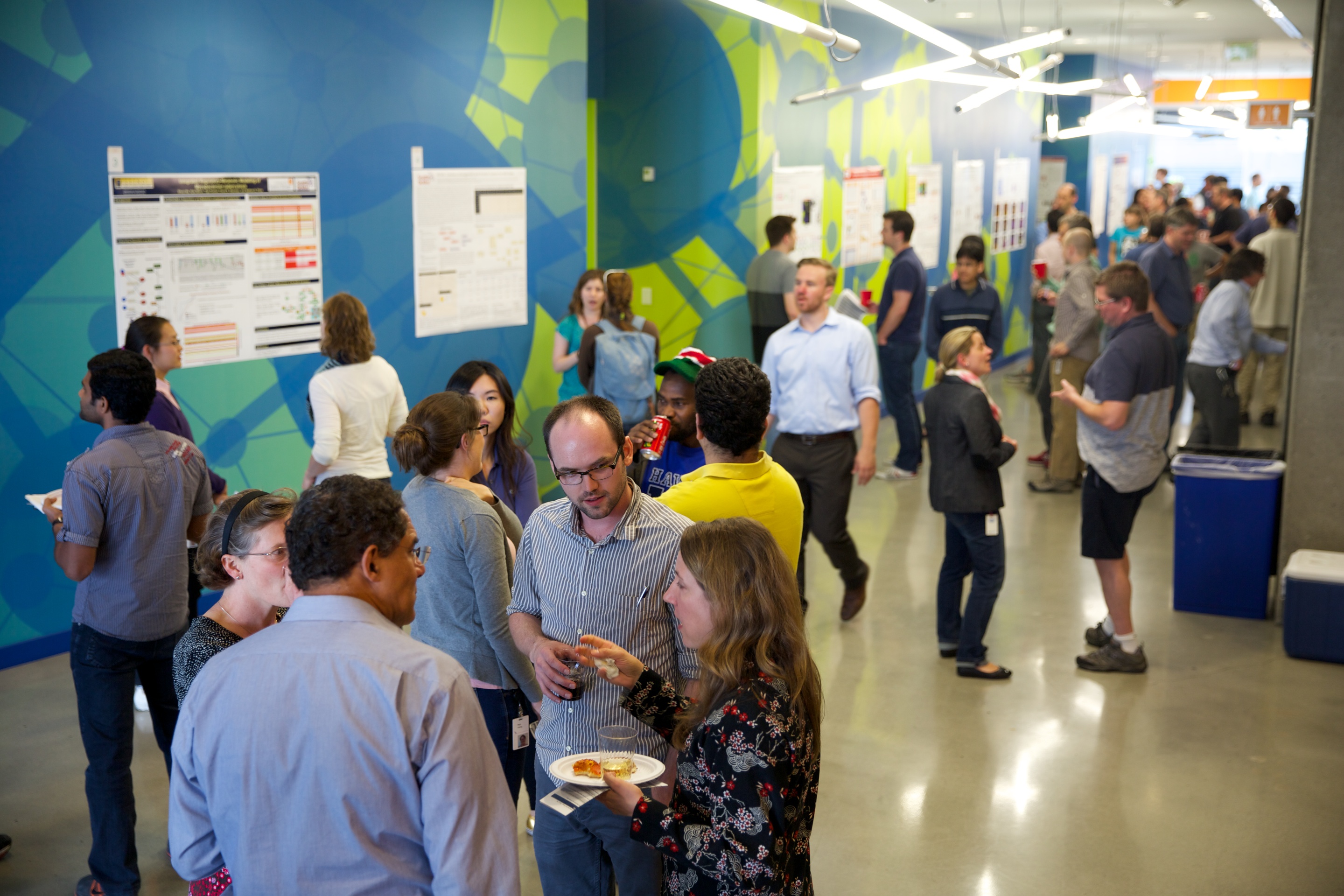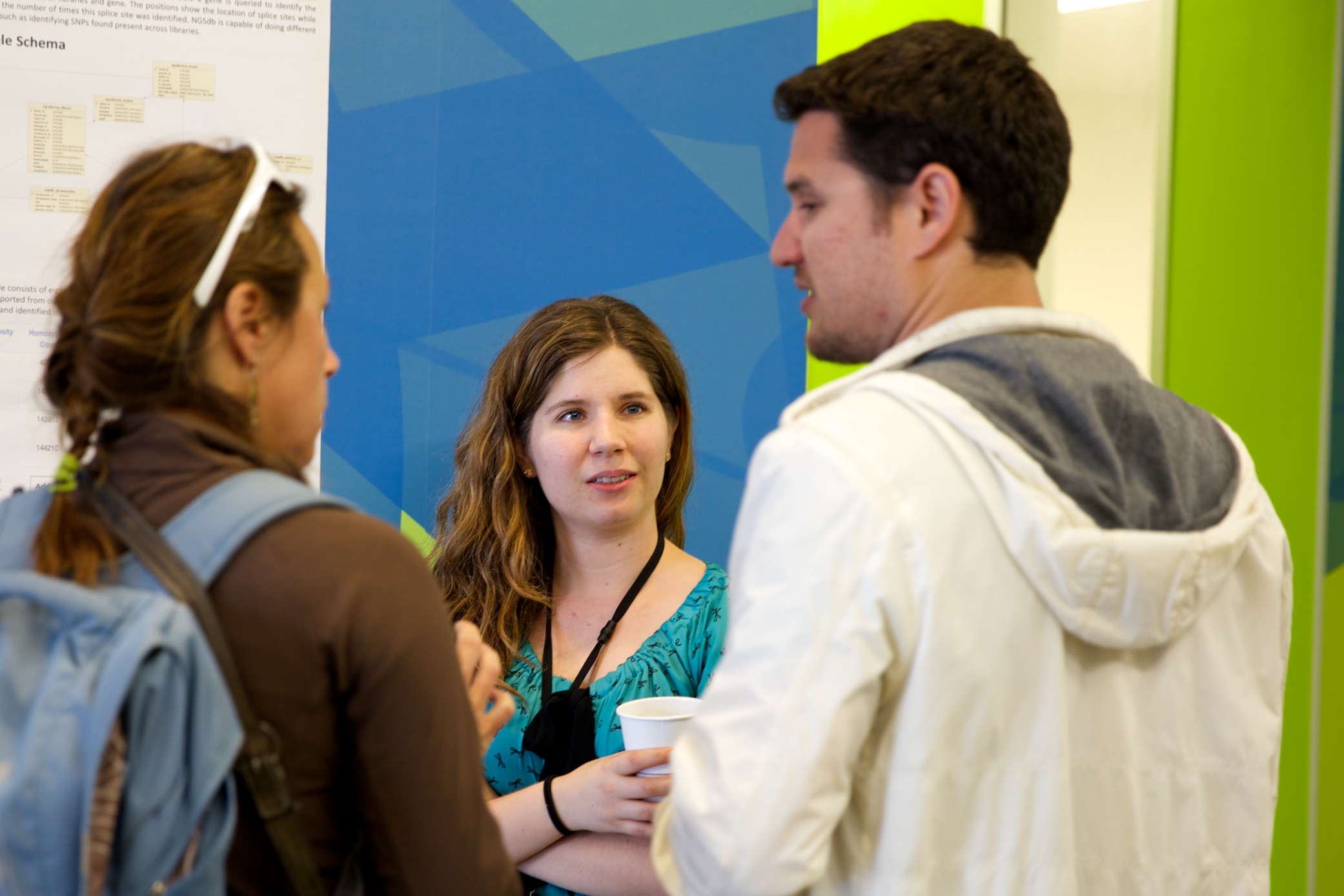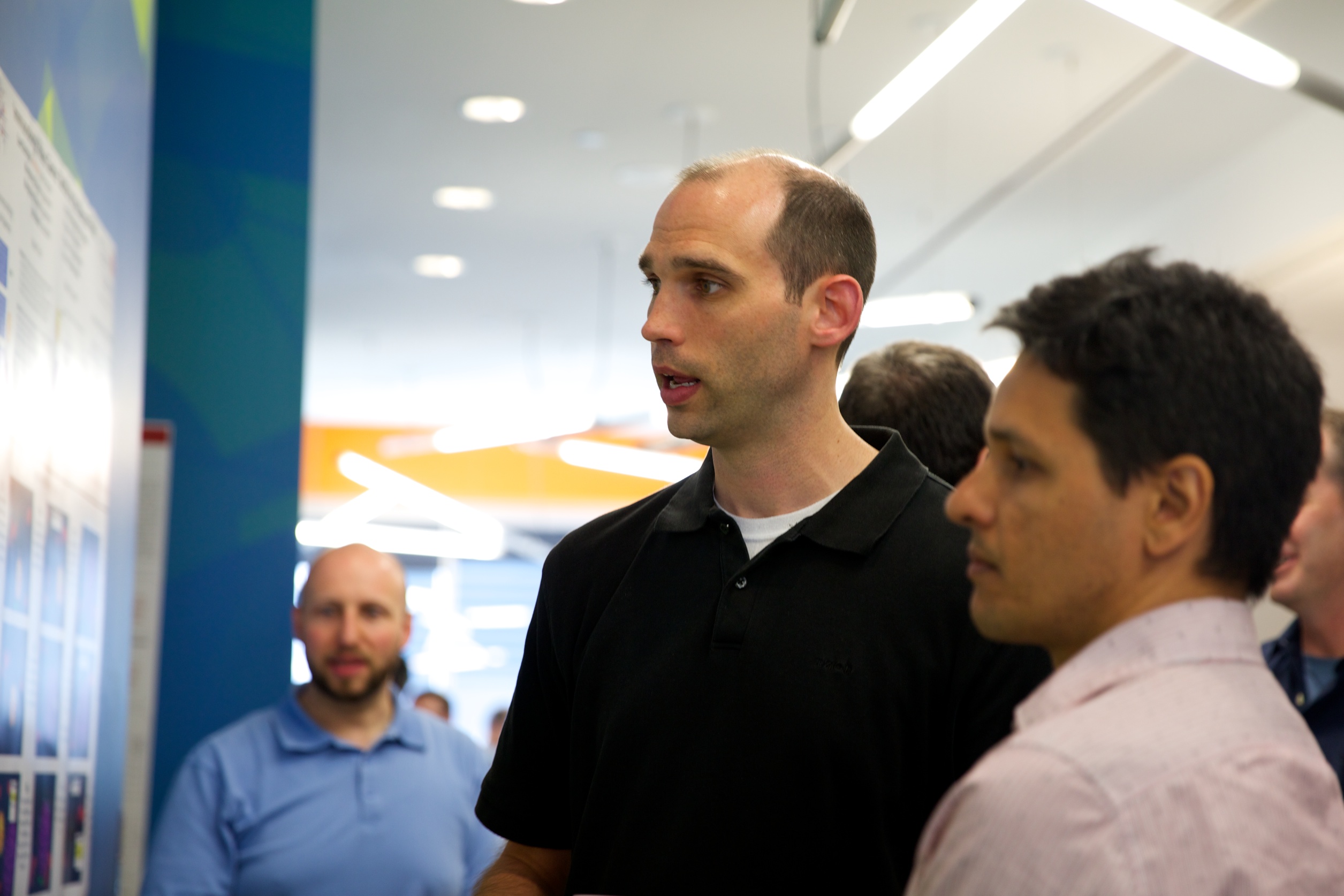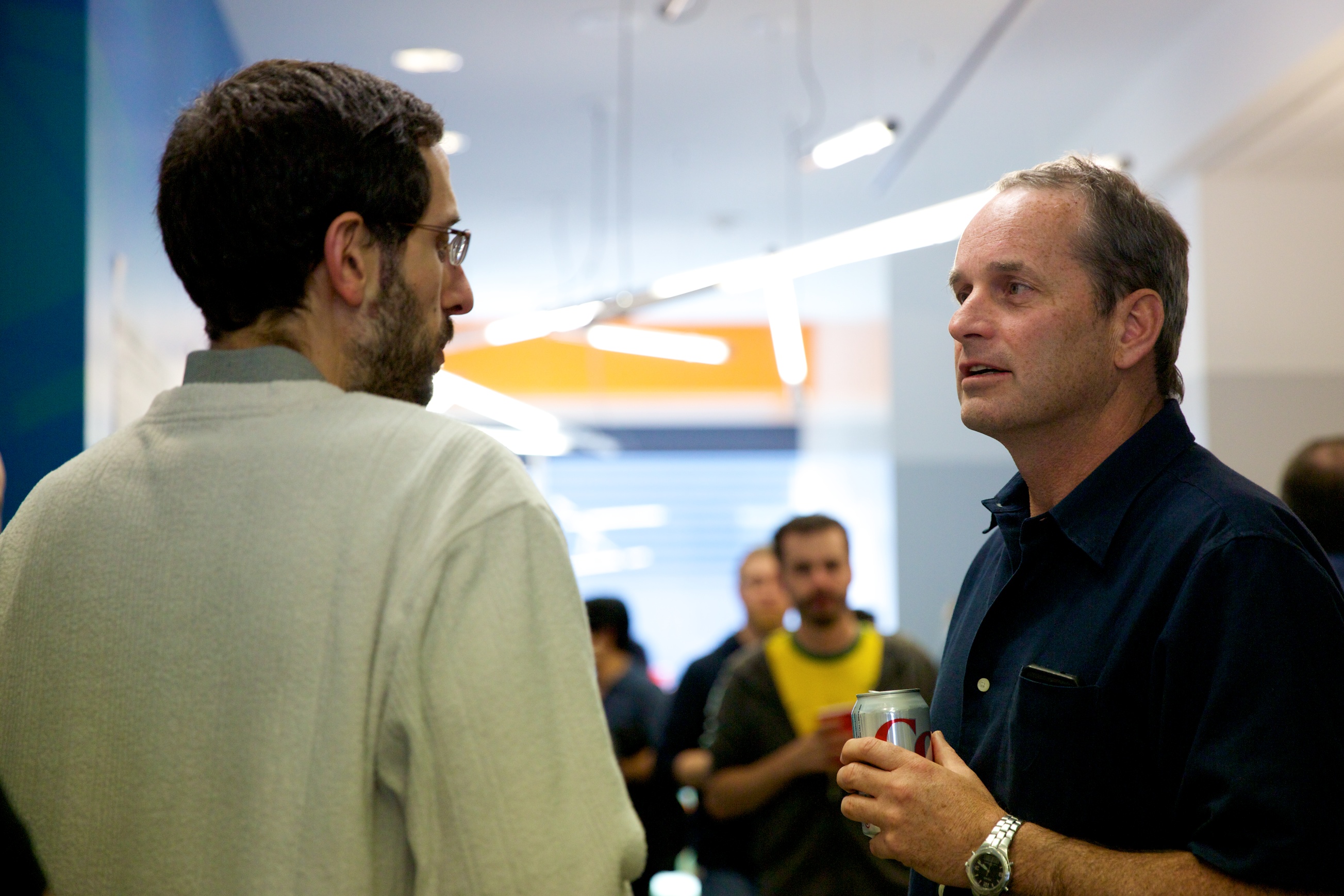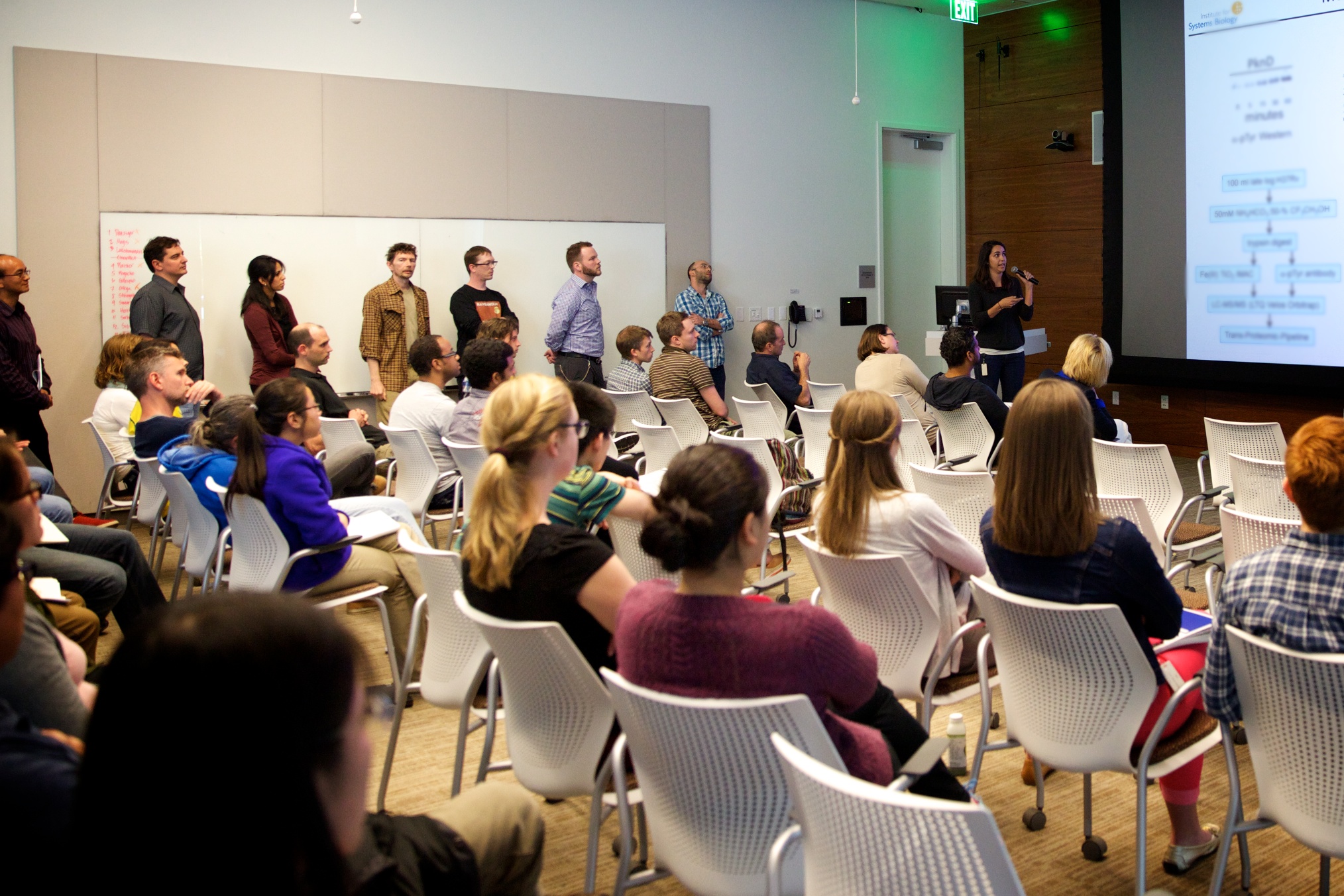3-Minute Science: ISB and Seattle BioMed Hold Annual Lightning Talks
 isbscience.org/news/2014/06/13/3-minute-science-isb-and-seattle-biomed-hold-annual-lightning-talks/
isbscience.org/news/2014/06/13/3-minute-science-isb-and-seattle-biomed-hold-annual-lightning-talks/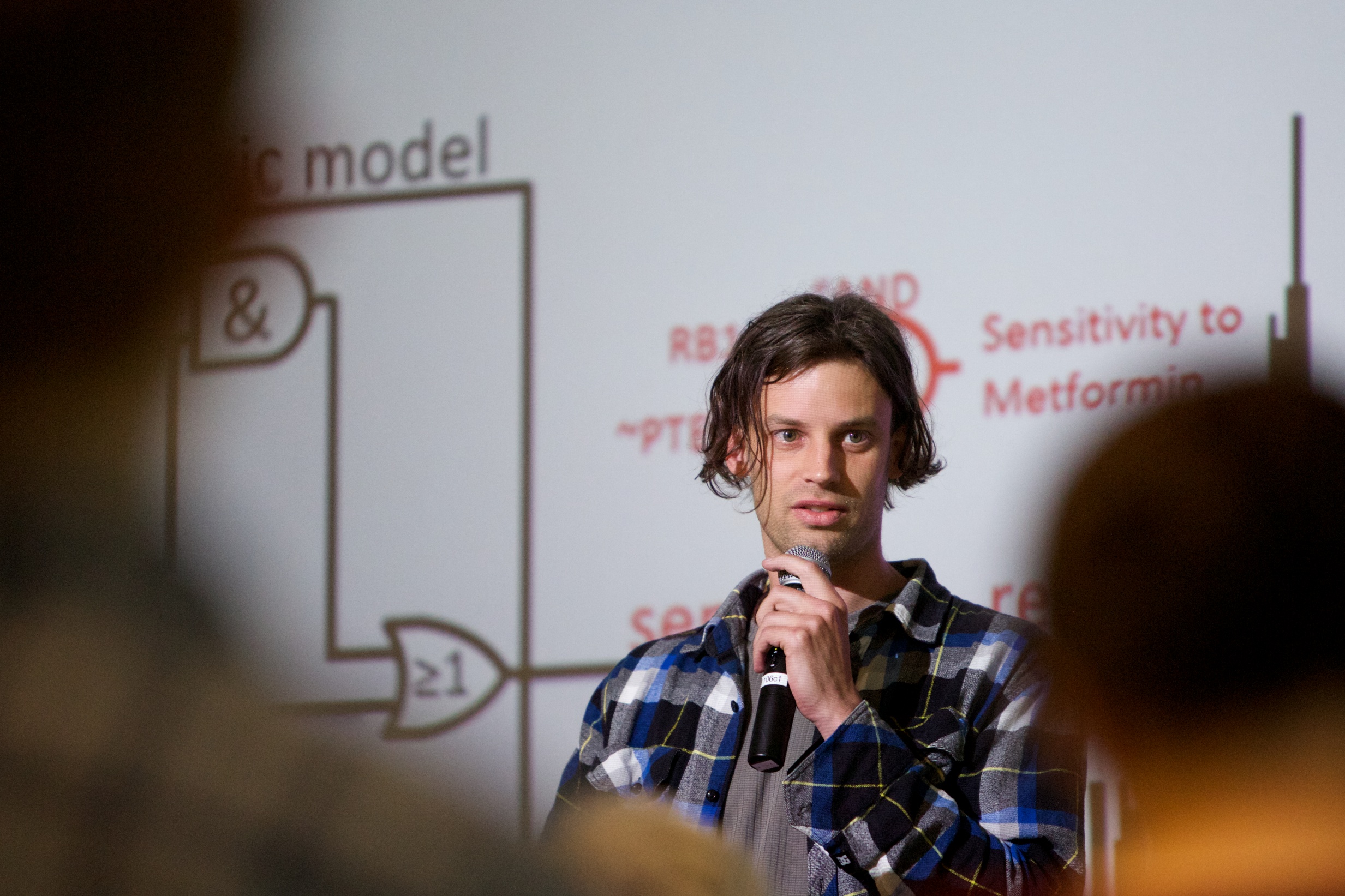
Photo: Theo Knijnenburg, a research scientist in ISB's Shmulevich Lab, presentaed a summary of his work related to gene mutations and cancer drug sensitivity.
Systems biology is about the culture as much as a scientific approach. ISB and Seattle BioMed have an inter-institutional agreement that enables the collective to benefit from shared knowledge and technology resources. For the second consecutive year, we held Lightning Talks (June 12) to allow researchers from both organizations to present three-minute talks describing their current projects and needs that could benefit from input or collaboration. There also was a subsequent poster session and social hour.



